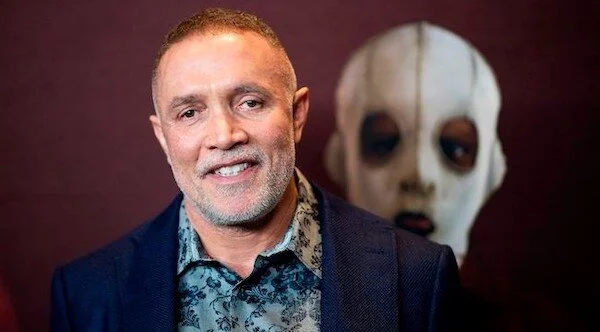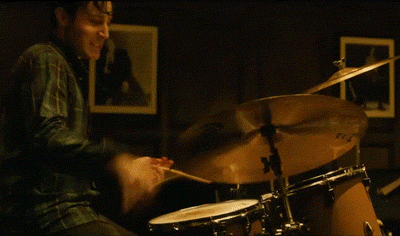Top 5: Film Scores Of 2019
With each new year’s wave of films comes an array of new cinematic soundscapes, and this year has been solid in that regard. Whether it marries perfectly with the visuals or can be cranked up on its own, a film’s score is integral to its atmosphere and overall aesthetic. At its very best, it enriches the film’s power by providing a layer of aural information that can inform the viewer on its characters and plot just as much as a the visuals.
2019 saw a slew of fantastic scores and soundtracks this year, and while many captured our ear and heart, only a handful are held dear. Here’s our picks for the best film scores of 2019.
5: Mark Korven, The Lighthouse
Following The VVitch, Mark Korven teamed back up with period auteur Robert Eggers for another moody, atmospheric psychological marvel, and it did not disappoint. Korven’s sensibilities seamlessly blend with the film’s aesthetic, psychology, and sound design — so much so that it becomes difficult to untangle the score from the sound design — resulting in a broody, bombastic, and bold accompaniment that amplifies the film’s dread and drama, giving it an undeniably chilling quality. The score is best described by Korven’s official statement, “Robert [Eggers] and I were rather like the two wickies that went insane in ‘The Lighthouse,’ musically speaking. We travelled to some very dark harmonic and textural places. We both enjoy not just breaking the rules, but blowing them to smithereens. The spirit of experimentation was always present.”
Best Cut: “Arrival”
4: Thomas Newman, 1917
Composer Thomas Newman gives Sam Mendes’ WWI epic, 1917, a soft, tender, and sweeping backing arrangement, which enhances the film’s emotionality and visceral qualities. Newman, who’s worked with Mendes on past projects like Road to Perdition and American Beauty, has already garnered a few nominations, some of which have already resulted in awards, so there’s no denying its sonic power. His blend of the orchestral, adorned with soaring cellos, with driving rhythmic electronic textures give the film a palpable pulse and the right level of sentiment. Best of all, Newman knows precisely when to subdue his arrangements, allowing them to rest in the background, and when to let them loose, bringing his sprawling symphonics to the forefront.
Best Cut: “The Night Window”
3: Randy Newman, Marriage Story
Randy Newman’s beautiful score to Noah Baumbach’s equally beautiful film is loaded with warmth and compassion. Newman creates lush variations on love that, when pressed against the character’s divorce, gently break your heart while inflating you with a bit of optimism. He uses the score to react to the things that unfold on screen, but to also tap into the personalities of the characters as well, which is showcased in the opening tracks, “What I Love About Nichole” and “What I Love About Charlie.” The film is filled with room for the music to step in and shine, giving the film’s silences and montage a romantic longing and sense of heartbreak. In a film that’s already bursting with feeling, Newman’s score gives Marriage Story an added boost, washing the viewer over with emotion and rich melody. The chamber orchestra accompanied by piano give the score a sense of intimacy and romantic whimsy, which oddly marries well with the film’s dissolving times.
Best Cut: “What I Love About Nichole” // “What I Love About Charlie”
2: Michael Abels, Us
Michael Abels took his compositions to the next level when he reunited with Jordan Peele for Us. He fills the score with Japanese taiko drums, chime-like echoes, anxious violins and restless chorales, and creates some truly haunting melodies that chills and thrills. He dabbles with a lot of different techniques and incorporates a lot of different instruments to the film’s soundscape, giving the film a sonically expansive backing track. Abels pulls from composers like Bernard Herrmann and Tchaikovsky for inspiration, as well as blending in contemporary melodies like Luniz’ “I Got 5 On It,” which is appears in stabbing orchestral string arrangement in “Pas De Deux.”
Best Cut: “Anthem”
Before we get to our #1 pick, here's a few that just missed the cut:
Bobby Krlic, Midsommar
Nathan Johnson, Knives Out
And now, our pick for the best film score of 2019 goes to...
1: Daniel Lopatin, Uncut Gems
For our money, no film score from 2019 went harder than Daniel Lopatin’s effort for the Safdie brothers’ phenomenal Uncut Gems — which was also our favorite film of 2019. Lopatin (AKA Oneohtrix Point Never) gives the film a pulsing synth score that plays right into the film’s anxiety-inducing squeeze. Drawing inspiration from from artists such as Isao Tomita, Tangerine Dream, and Vangelis, as well as the 1970s-80s new-age duo Emerald Web, Lopatin creates an epically cosmic soundscape full of squirming wiry leads and soft, effervescent pads that allow certain moments to breathe. From sleek, gleaming synth and sexy sax to new-age elements like meditation bowls and chanting, Lopatin’s score for Uncut Gems is more beautiful, more ethereal, more orchestral, and a bit more goofy, creating the kinda aural experience that you can enjoy on its own, just as much as you can when accompanied by the film.
Best Cut: “The Ballad Of Howie Bling” and “Uncut Gems”
That's our list! Did we leave off your favorite score?! We want to know. Share your thoughts and feelings in the comments section below, and as always remember to viddy well!







